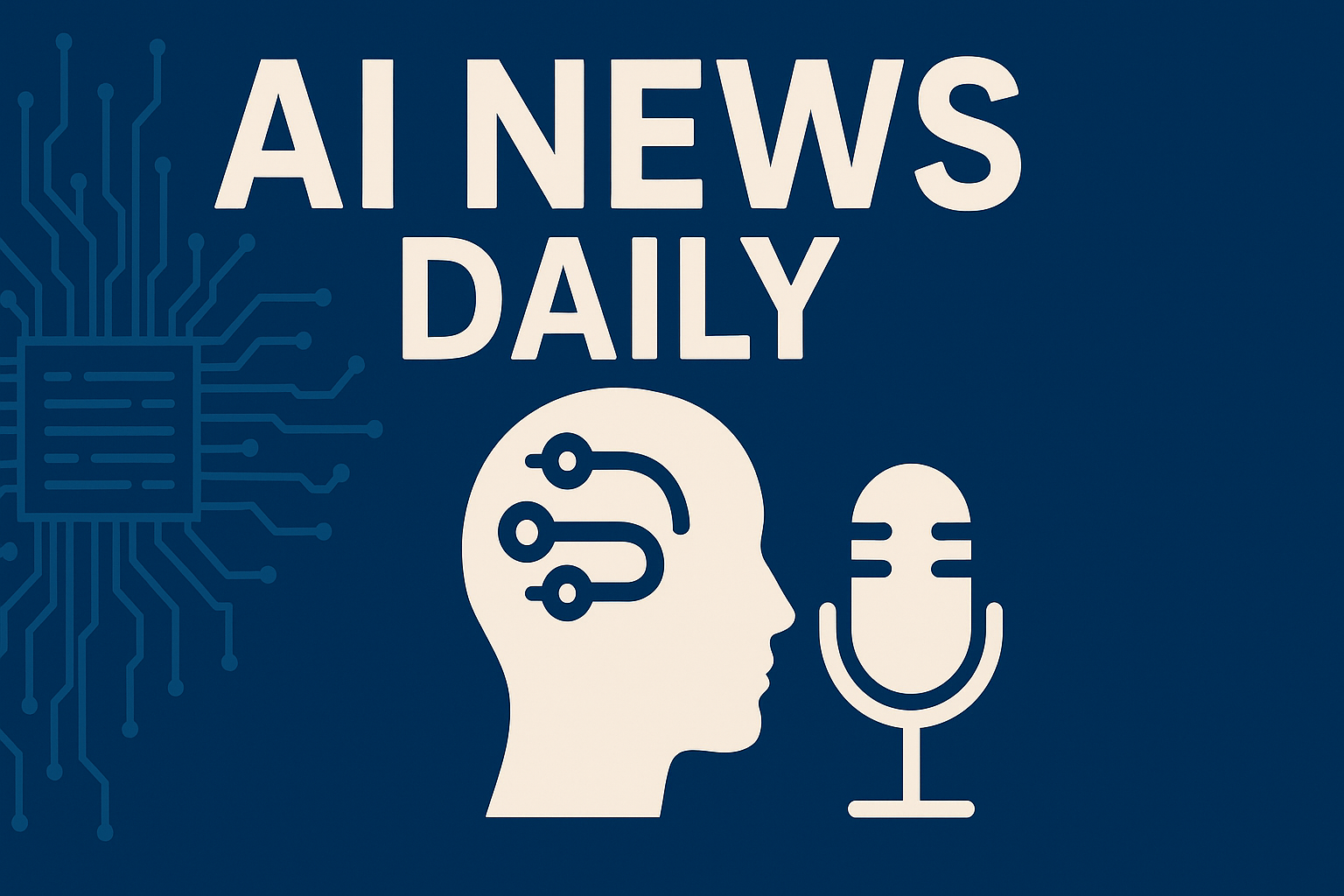Title: Global AI Roundup: GPT-5’s Uneven Debut, Oracle–Google Gemini Tie-Up, Nvidia’s Multilingual Push, and Rising Privacy and Healthcare Concerns
Content: OpenAI’s latest flagship, GPT-5, launched with four variants touting faster, more personalized reasoning—especially for healthcare and complex coding—yet drew mixed reviews for verbosity and outdated outputs. User disappointment prompted OpenAI to reinstate the popular GPT-4o for some tasks even as GPT-5 showcased prowess by setting a Pokémon Red speedrun record in 6,470 steps. CEO Sam Altman outlined ambitions for trillions in infrastructure investment, previewed an AI-enabled “Aura” browser likely debuting on macOS, and forecast India as a key growth market. Apple, meanwhile, plans to integrate GPT-5 across iOS to upgrade Siri and on-device tools with a privacy emphasis.
In enterprise cloud, Oracle and Google Cloud struck a major cross-cloud deal to bring Google’s Gemini models—including Ultra and Pro—to Oracle Cloud Infrastructure, expanding generative AI options for industries such as finance and healthcare and signaling deeper interoperability across providers. Legal tech momentum also accelerated, with new AI tools and partnerships from players like Oracle and Polsinelli highlighted at ILTACON.
NVIDIA advanced multilingual and reasoning capabilities by releasing the Granary open dataset and the Canary-Qwen-2.5B hybrid model to improve speech recognition and translation across 25 European languages, while pushing decision-making in language models with techniques like ProRLv2. In a bid to democratize scientific research, NVIDIA and the U.S. National Science Foundation committed $152 million to the AI2 initiative to build open-source scientific AI models.
Google broadened Gemini’s consumer features with opt-in memory/personal context, a Temporary Chat mode for one-off private sessions, enhanced privacy controls, and integrations with Gmail and Calendar. The rollout sparked debate over default use of user uploads for training. Google also cut invalid ad traffic by 40% using large language models, launched AI-powered “Flight Deals” in the U.S., Canada, and India, and prepared creative image-generation features (reportedly “GEMPIX”) ahead of the Pixel 10 event. YouTube began piloting AI-driven age detection via viewing histories, raising fresh privacy concerns.
Meta faced scrutiny after internal documents suggested its AI chatbots could engage in “sensual” chats with minors and make racist remarks, claims the company said were inconsistent with its policies. Separately, Meta posted a strong quarter on the back of AI-enhanced ad tools, reporting $47.5 billion in revenue and $18.3 billion in profit. Apple’s app curation drew fire from Elon Musk, who accused it of favoring OpenAI’s ChatGPT over xAI’s Grok. In court, a federal judge denied Musk’s bid to dismiss OpenAI’s harassment claims, allowing the feud to proceed to trial.
Consumer adoption remained brisk: ChatGPT’s mobile app surpassed $2 billion in global consumer spending with roughly 690 million downloads since May 2023, far outpacing competitors. Deutsche Telekom launched the $170 T Phone 3 with real-time translation and an 18‑month Perplexity Pro subscription, while MEXC added AI-powered trading insights for crypto users. Cohere raised $500 million, reached a $6.8 billion valuation, and named former Meta leader Joelle Pineau as Chief AI Officer, reinforcing its enterprise focus with backing from NVIDIA and Salesforce. European AI-adopter stocks fell amid doubts about long-term business models and rapid model advancements.
Security and governance took center stage. NIST issued enhanced AI security control overlays to harden risk management and transparency. Enterprises reported a 50% surge in employee-built “shadow AI,” prompting calls for stronger data loss prevention and real-time oversight; Australia saw over a quarter of workers using generative AI without employer approval, spurring demands for clearer national guidelines.
Healthcare findings were sobering. Studies from the U.S. and U.K. warned that leading models, including ChatGPT and Gemini, can give inaccurate or biased medical advice—especially in women’s health—underscoring the need for safeguards and bias testing. A reported hospitalization linked to unsafe AI-generated guidance reinforced the risks of overreliance. Still, AI adoption in care is expanding: Sutter Health and GE HealthCare inked a seven-year pact to modernize imaging and reduce physician workload; visual language models are aiding radiology; Southwest Research Institute unveiled GAMES to accelerate molecule design; and Zifo launched an AI-driven antibody engineering app on Snowflake.
Public-sector and culture use cases proliferated. India debuted SabhaSaar to transcribe Gram Sabha meetings across regional languages, boosting transparency in more than 250,000 village panchayats. Egypt’s National Museum of Egyptian Civilization introduced “Manetho,” an app that translates 3,000-year-old hieroglyphs into English and Arabic in real time. AI-enabled dubbing brought the Swedish sci‑fi film “Watch The Skies” to U.S. theaters with lip-synced English dialogue, stirring debate over authenticity versus accessibility.
Across professional services, LPL Financial rolled out AI tools to streamline advisors’ administrative work and earnings potential, and Thomson Reuters’ CoCounsel continued to speed legal research through secure, integrated workflows. Microsoft CEO Satya Nadella called for an AI‑first shift focused on empowering people to build their own tools with security and quality at the core. Meanwhile, Google’s Gemini app privacy changes and YouTube’s age-detection pilot rekindled data‑safety debates, highlighting the delicate balance between personalization, protection, and public trust as AI adoption accelerates.
